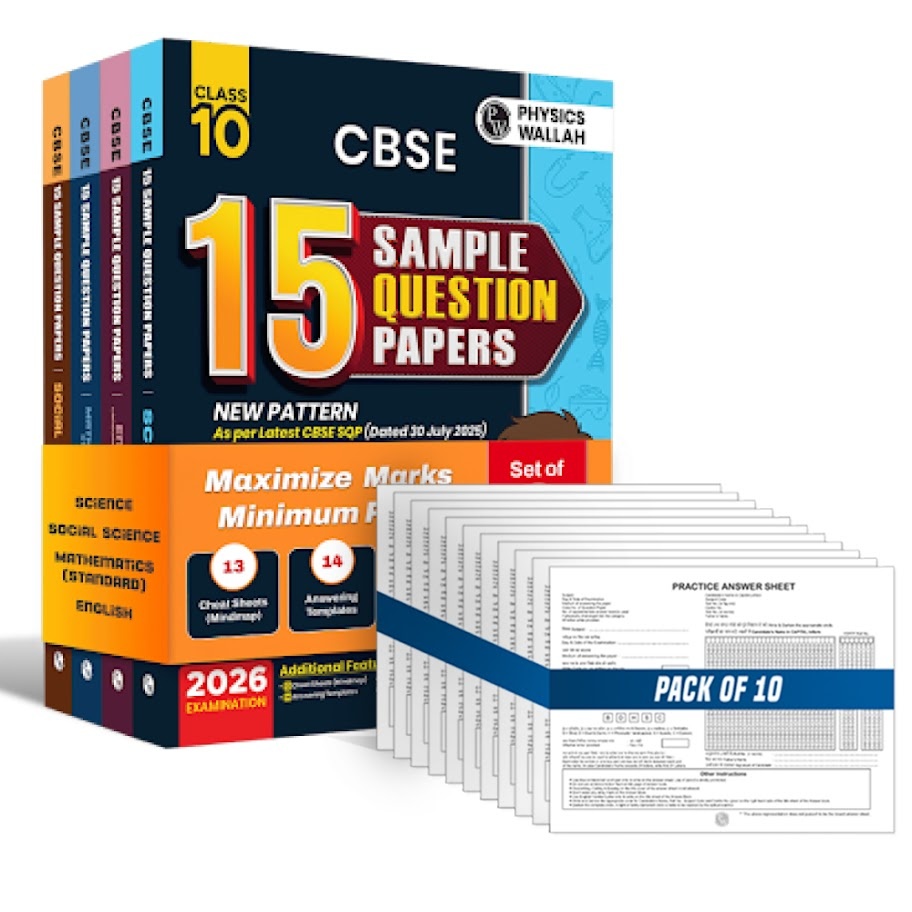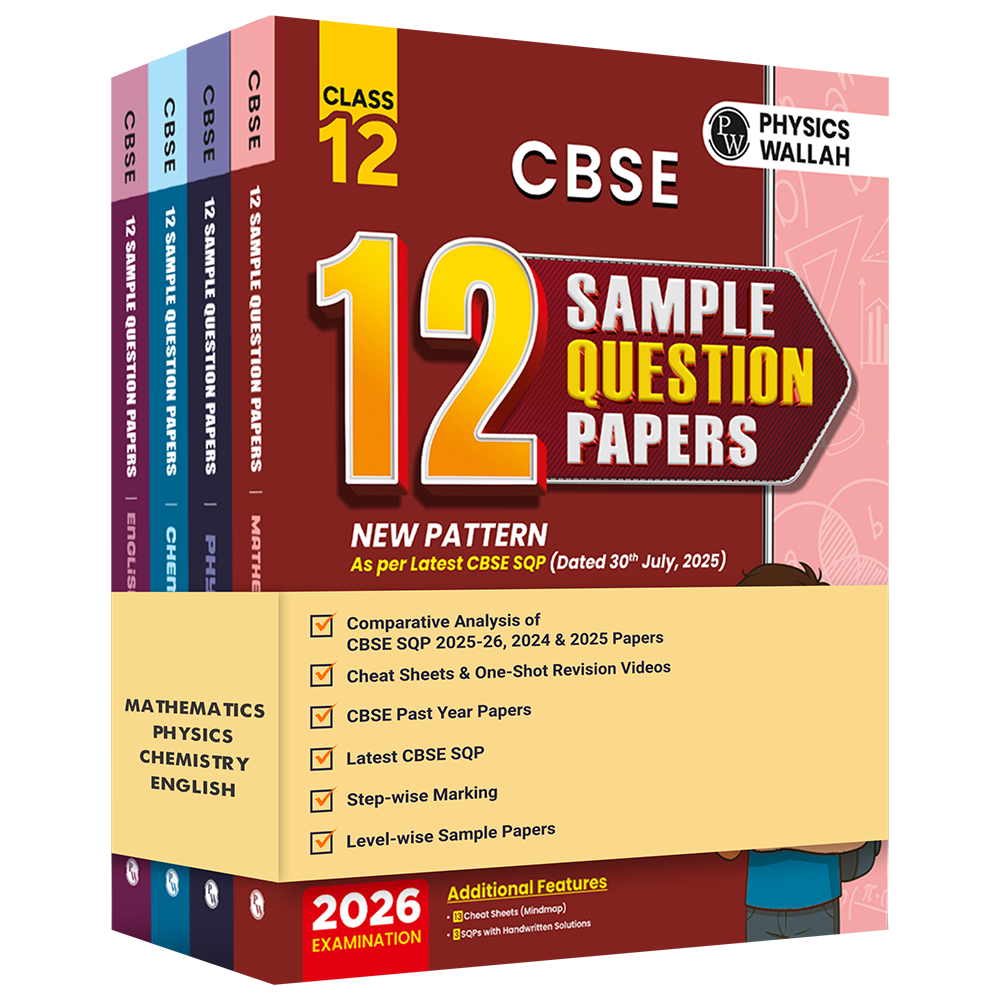How to Write Answers in Board Exams: Tips for Class 10 and 12 Students

How to Write Answers in Board Exams: Tips for Class 10 and 12 Students: Board exams are an important milestone in a student's academic life. Students in Class 10 and Class 12 need to approach these exams with a clear plan and strategy. One of the most crucial skills to master is how to write answers in board exams. Writing effective answers in the exam can help students score higher marks and reduce their stress levels during the exam. In this article, we will discuss some simple and easy tips that will help students understand how to write board exam paper Class 10 and how to write in board exam copy Class 12. These tips will also focus on board paper writing style and how to manage time effectively.
Check out: PW School Books
How to Write Board Exam Paper Class 10: Effective Tips
Class 10 is an important year for students, and board exams in this class are a big deal. The way students approach writing answers in the exam paper can make a huge difference in their scores. Here are some simple and useful tips for how to write board exam paper Class 10.
Check out: CBSE Class 10th Books
Start with a Clean and Neat Answer Sheet
When students receive the exam paper, the first thing to do is make sure the answer sheet is clean. Write your name, roll number, and other required information correctly on the top of the sheet. A clean and tidy answer sheet sets a positive impression on the examiner right from the start.
Understand the Question Carefully
Before writing any answer, students should carefully read the question. Understanding what is being asked is the most important part of answering. For example, if the question asks for a list, students should write points in bullet form. If the question asks for an explanation, students should explain the answer step by step.
Answer in Points
For questions that require listing or multiple points, students should use bullet points or numbering. This makes it easier for the examiner to quickly understand the answer and helps in marking. Each point should be short, clear, and to the point. Avoid writing unnecessary details that are not part of the question.
Stick to the Point
Many students make the mistake of writing long answers that include unnecessary information. It is important to keep answers to the point and directly related to the question asked. If a question asks for a definition, write only the definition. If it asks for an explanation, explain it briefly but completely. Avoid writing stories or irrelevant details.
Check out: CBSE Class 10th Sample Papers
How to Write in Board Exam Copy Class 12: Tips for a Structured Approach
Class 12 board exams are a bit more challenging than Class 10. How to write in board exam copy Class 12 requires students to have a more organized and structured approach. Here are some tips that can help.
Check out: CBSE Class 12th Books
Start with a Brief Introduction
For essay-type questions, it is a good idea to begin with a short introduction. This sets the stage for the rest of the answer. The introduction does not need to be too long or detailed, but it should give the examiner an idea of what the answer will cover.
Use Paragraphs for a Clear Structure
In Class 12 exams, students should avoid writing answers as long paragraphs. Instead, use multiple paragraphs to break down the answer into smaller, clear sections. Each paragraph should cover a particular point or idea. This makes the answer more readable and structured.
Write a Conclusion
If the question asks for an explanation or discussion, it is always a good idea to end the answer with a conclusion. A conclusion is a brief summary of the main points. It helps in summarizing the answer and leaves a strong impression on the examiner.
Highlight Key Terms and Concepts
For important terms, students should consider underlining or highlighting key points. This will make it easier for the examiner to spot the important parts of the answer. It also shows the examiner that the student understands the key concepts well.
Avoid Over-Explaining
Class 12 students sometimes tend to over-explain when answering questions. It is important to explain things clearly but briefly. Over-explaining can waste time and may make the answer look complicated. Stick to the main points and explain them concisely.
Check out: Class 12th Sample Papers
Tips for Board Exam: Time Management and Presentation
Writing answers in the exam paper is not just about knowing the right answers but also managing time effectively and presenting the answers in a way that is easy to read. Here are some tips for board exams that can help students.
Divide Time According to Marks
One of the right ways to manage time during the board exam is by dividing it according to the marks of each question. If a question is worth 5 marks, students should allocate more time to it than a question worth 2 marks. Spending too much time on a small question can reduce the time available for larger questions.
Don’t Spend Too Much Time on One Question
If students are stuck on a question, it’s better to move on to the next one and come back later. Spending too much time on one question may cause students to miss other easier questions. This can affect the overall score. It’s important to keep moving forward during the exam.
Answer the Easy Questions First
It’s a good idea to start with the questions students feel most comfortable answering. This helps build confidence and saves time for more difficult questions. By answering easy questions first, students can secure quick marks and boost their morale.
Keep the Answer Sheet Neat and Organized
A neat and organized answer sheet not only looks good but also helps the examiner in evaluating the answers. Students should leave proper space between the lines and between answers. This makes the answer sheet more presentable and makes it easier for the examiner to mark.
Also Check, Answer Sheet for CBSE
Board Paper Writing Style: Presentation is Key
The board paper writing style plays a big role in how students perform in their exams. The way the answers are presented can influence the marks awarded. Here’s how students can improve their board paper writing style.
Use a Proper Font Size
Writing in very small or too-big letters can make the answer sheet difficult to read. Students should use a normal font size that is comfortable to read. The text should be neat but not cramped.
Avoid Overwriting
If students make a mistake, it’s better to rewrite it neatly rather than overwrite it. Overwriting can make the answer look messy and difficult to read. A neat cross-out shows the examiner that students are careful and organized.
Read More: Topper Answer Sheet Class 10 CBSE PDF Download
How to Write Answers in Board Exams: General Tips for Success
Finally, here are some general tips on how to write answers in board exams that can help both Class 10 and Class 12 students.
Stay Calm and Focused
During the exam, students need to stay calm. Panicking or stressing out can lead to mistakes and a waste of time. If students remain calm and focused, they will be able to think more clearly and write better answers.
Revise Important Topics Before the Exam
Before the exam day, students should revise the key topics and concepts. This will help students remember important facts during the exam. If students are unsure about a topic during the exam, they can skip it and come back later when they are more confident.
Check Your Answers
If there is time left at the end of the exam, students should go through their answers once more. This helps catch small mistakes or points that may have been missed. A quick review can sometimes make a big difference in the final score.
Read More: CBSE Topper Answer Sheet for Class 12 PDF Download
Tips for Board Exam FAQs
Q1. What is the right way to start writing answers in board exams?
Ans. The right way to start is by writing your name, roll number, and other required information correctly at the top of the answer sheet. Ensure the answer sheet is neat and clean.
Q2. How should students approach the questions in board exams?
Ans. Students should first read the question carefully, understand what is being asked, and then proceed to write concise, clear answers. Always answer the questions directly without unnecessary details.
Q3. How can students improve their handwriting in board exams?
Ans. Practicing neat and legible handwriting regularly before the exam helps improve legibility. Writing at a comfortable size, neither too small nor too big, ensures readability during the exam.
Q4. What should be included in an answer for a 5-mark question?
Ans. For a 5-mark question, students should provide a detailed yet to-the-point answer with key points. Break the answer into bullet points or short paragraphs, and if needed, provide an introduction and conclusion.











